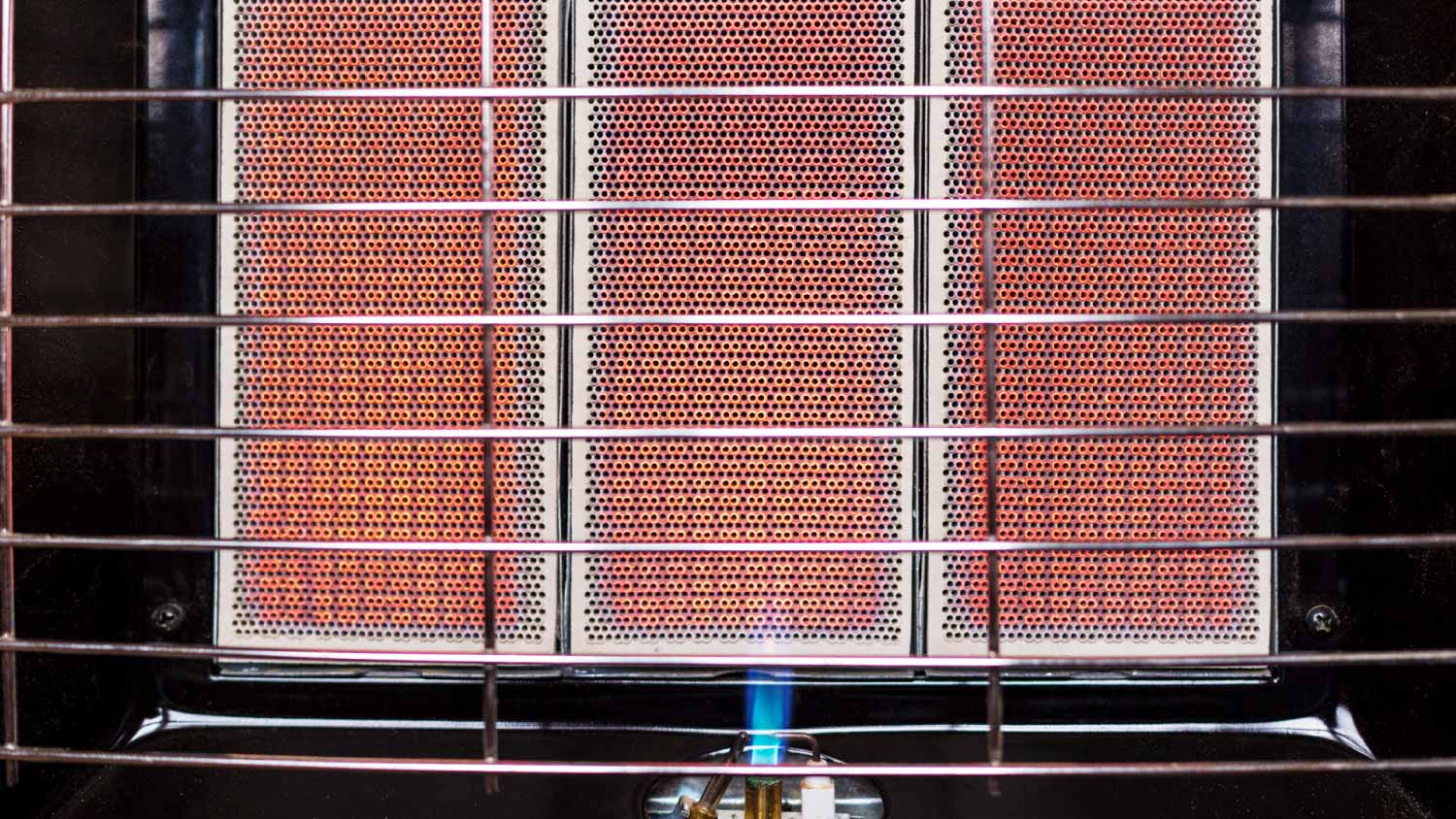
A blower door test can identify air leaks in your home and help boost energy efficiency. Use this blower door test cost guide to see what your test will total.
Don’t sweat it—these portable heaters are safe, so long as you follow safety guidelines


Propane heaters use propane gas in a tank to generate heat.
Propane heaters must be used in well-ventilated spaces to reduce the risk of carbon monoxide poisoning.
There are three types of propane heaters: radiant, catalytic, and convection.
Propane heaters can be used in a garage if they’re rated for indoor use.
Wondering whether you can use a propane heater in your garage? The short answer is yes, but only with the proper safety precautions. Stay warm in your garage year-round by equipping it with a propane heater. Let’s review how to safely use a propane heater.
A propane heater is a type of space heater that uses propane gas as its fuel source, which generates heat. The propane is stored in a pressurized tank directly connected to the heater. Most propane heaters are used in indoor-outdoor spaces, such as garages, workshops, and camping sites.
The most important thing to consider before purchasing a propane heater is ensuring the space has the proper ventilation to prevent carbon monoxide build-up. Check to see if your propane heater or the one you’re considering purchasing has an automatic shut-off mechanism to reduce any risks.
The surefire way to know whether a propane heater can be used in a garage is to see if it’s rated for indoor use. If so, it’s safe to use in your garage or other enclosed areas. Check if the heater is rated by a recognized safety organization such as the CSA, which is the U.S. government’s compliance and safety enforcement program. You can also contact your local furnace repair company to see if the heater you’re interested in is recommended.

There are several types of propane heaters that may suit your needs based on how they emit heat.
Convection heaters distribute warm air over a large space by blowing air over a chamber or heated element. They’re best for warming up large areas in a short timespan.
This type of propane heater uses an infrared panel that heats things around it, as opposed to the air. Radiant propane heaters are extremely portable and typically used in outdoor settings.
If you need to use a propane heater in a flame-free environment, a catalytic model might be a good fit. It uses a catalytic process (hence the name) to produce heat with lower emissions and less flame.
Even if your space heater is marked safe to use in a garage, it’s still important to put a number of safety measures in place to ensure no mishaps occur.
No matter where you place your propane heater, make sure there’s enough free space around it. Place it at least six inches away from any walls, furniture, or other obstacles. Refrain from placing anything on top of the heater to prevent a fire hazard.
It helps to place a carbon monoxide monitor in or around your garage to detect harmful leaks. If the alarm goes off, exit the area quickly and notify emergency services of a potential gas leak.
Become aware of what smell propane emits if leaked. Some people say propane has a rotten egg-like scent. The presence of this smell could indicate a potentially dangerous leak in the heater. If this happens, call 911 or other emergency hotlines for assistance.
From average costs to expert advice, get all the answers you need to get your job done.

A blower door test can identify air leaks in your home and help boost energy efficiency. Use this blower door test cost guide to see what your test will total.

Discover the primary whole-house air filtration system cost factors when installing one in your home to help remove airborne contaminants and allergens.

The average boiler installation cost depends on size, system type, and other factors. Keep reading to learn the cost of a new boiler.

Discover the benefits of a DIY outdoor wood furnace forced-air system. Cut costs, reduce fire risk, and embrace renewable heat for your home.

What size heat pump do I need? Learn the various heat pump sizes and how to calculate which size is best for your home.

If you’re having issues with your heating and cooling system, it’s probably time to discuss these heat pump questions with your HVAC pro.